SHUBHA KHOTE HINDI ACTRESS
BORN 1936 AUGUST 30
Shubha Khote (born 30 August 1936) is an Indian film and television actress. She is also a former women's national champion in swimming and cycling.[1]
Early life and education[edit]
Shubha Khote was born into a Marathi-Konkani family, the daughter of noted Marathi theatre personality Nandu Khote by his wife, a Konkani lady from Mangalore in Karnataka. The actor Viju Khote was her younger brother.[1] Veteran actress Durga Khote was the wife of Shubha's father's cousin. Shubha's maternal uncle, Nayampalli, was also an actor.[2]
Shubha Khote studied at St. Teresa's High School, Charni Road and St.Columba school (Gamdevi). As a girl, she excelled at swimming and cycling, and in an era when very few women even ventured into such sports, she was women's national champion in swimming and cycling for three successive years, 1952–55. After completing school, she graduated in English Literature from Wilson College.
Shubha is married to D. M. Balsavar, who is (like Shubha's mother) from Mangalore. He was the Vice President of Marketing in Nocil, a major Indian corporate.[3] He appeared in a cameo in the Marathi movie Chimukla Pahuna (1968), which she produced and directed.[2] Their daughter, Bhavana Balsavar is also a TV actress.[4]
Career[edit]
She made her stage debut as child actor at age 4,[5] and her film debut in Seema (1955) as Putli. Her good cycling made her widely known, and led to Seema's team casting her. Since then, she has starred in a large number of Hindi and Marathi movies, stage shows, and TV serials. She mostly starred opposite Mehmood and the pair became hit in Sasural, Bharosa, Ziddi, Chhoti Behan, Sanjh Aur Savera, Love in Tokyo, Grahasthi, Humrahi and Beti Bete. She also played negative roles in Paying Guest and Ek Duuje Ke Liye. In 1962, at the 9th Filmfare Awards, she received two nominations for Filmfare Award for Best Supporting Actress for Gharana and Sasural, though she lost to Nirupa Roy.[6]
She has directed comedy plays such as Hera Pheri, Hum Dono, Bachelor's Wife and Let's Do it (2000).[5][7] Her home production Bachelor's Wives (adapted from the Marathi play Gholat Ghol) had more than 40 performances in Mumbai and Aurangabad. Her TV show Zabaan Sambhalke (based on the Mind Your Language series) was a major hit.[8]
She has also worked in the Marathi teleserial Eka Lagnachi Teesri Goshta on Zee Marathi.[9]
Selected filmography[edit]
Movies
- Seema (1955)
- Paying Guest (1957)
- Dekh Kabira Roya (1957)
- Didi (1959)
- Chhoti Bahen (1959)
- Anari (1959)
- Gharana (1961)
- Sasural (1961)
- Hamrahi (1963)
- Grahasti (1963)
- Dil Ek Mandir (1963)
- Ziddi (1964)
- Phoolon Ki Sej (1964)
- Akashdeep (1965)
- Love in Tokyo (1966)
- Tumse Achha Kaun Hai (1969)
- Mili (1975)
- Benaam (1974)
- Gol Maal (1979)
- Badalte Rishtey (1978)
- Naseeb (1981)
- Ek Duuje Ke Liye (1981)
- Suraag (1982)
- Ek Din Bahu Ka (1983)
- Pukar (1983 film)
- Coolie (1983)
- Gangvaa (1984)
- Hum Dono (1985)
- Haqeeqat (1985 film)
- Saagar (1985)
- Aakhir Kyon? (1985)
- Mazloom (1986)
- Swarag Se Sunder (1986)
- Hifazat (1987)
- Khoon Bhari Maang (1988)
- Billoo Badshah (1989)
- Kishen Kanhaiya (1990)
- Jawani Zindabad (1990)
- Sher Dil(1990)
- Pyar Hua Chori Chori (1990)
- Dil Hai Ki Manta Nahin (1991)
- Saudagar (1991)
- Ek Ladka Ek Ladki (1992)
- Parda Hai Parda (1992)
- Junoon (1992)
- Anari (1993)
- Waqt Hamara Hai (1993)
- Saajan Ka Ghar (1994)
- Sangdil Sanam (1994)
- Koyla (1997)
- Sirf Tum (1999)
- Shararat (2002)
- Toilet: Ek Prem Katha(2017)
- Bucket List (2018)
TV
- Junoon (1993)
- Zabaan Sambhalke (1993)
- Ek Raja Ek Rani (1996)
- Andaaz (1998)
- Dam Dama Dam (1998-1999)
- Jugni Chali Jalandhar(2008-2010)
- Baa Bahoo Aur Baby (2010)
- Eka Lagnachi Teesri Goshta (2013 Marathi)
- Mangalam Dangalam (2018-2019)
I never believed I was pretty - Shubha Khote
by Farhana Farook | April 2, 2019, 17:44 IST
Overview (1)
| Born | in Bombay, Bombay Presidency, British India |
Mini Bio (1)
It was only natural that Shobha Khote strayed into show business. Her father, Nandu Khote, was a star on stage and in the silent movies. Durga Khote, a famous movie personality of the yesteryear, was her aunt. The huge family home at Bombay's Chowpatty was always full of guests.
"I had a happy, carefree childhood," she says. "Ours was a big, joint family and most of my cousins were boys. I used to play with them, run around, climb trees and was an acknowledged tomboy." She studied at St Teresa's Convent, Girgaum, and graduated in English Literature from Wilson College.
Life in college was quite exciting to Khote and her brother Viju, another well-known stage, TV and screen actor. She took to swimming and cycling, excelled in both games and set up a new record for the one mile in cycling.
"My family was sports-minded," recalls Khote. "Father had built a gymnasium in the house itself. Many of his friends spent time there exercising. I Lent a lot from him. He taught that one can learn hard work, sincerity and team spirit from sports."
Both at school and college, Khote made occasional appearances on stage.
It was fun, but I just took it casually," she says. As Khote made her name in sports, her photographs began appearing in the newspapers and magazines. Well-known director Amiya Chakraborty sent his distributor friend, Kamath, to invite Khote for a screen test. Khote recalls with a giggle, "When Kamathsaab arrived, I was in tomboy outfit, with hair flying all round. He did not think much of me and reported back to Amiyada," Fortunately, Amiya Chakraborty was not convinced and after meeting her, cast her in his Seema.
The role was a challenge. Seema, which starred Nutan and Balraj Sahni was not the run-of-the-mill Hindi movie, and Khote was pitted against two highly sensitive and intelligent artists. But she came out with flying colors. "Amiyada told me he wanted a different kind of actress for the role, who would be natural. I fitted the bill. In fact, he did not even give me screen test," says Khote.
She also had a score to settle with veteran actress Leela Chitnis, who along with her two songs, was producing a movie. Chitnis offered Khote the lead role, on condition she would not work elsewhere for the next five years.
"My father did not agree to this condition," she recalled. "In fact, I had cut my hair for the role and even rehearsed enthusiastically for some weeks. And when they dropped me, I wanted to show them the loss was theirs."
Filmistan offered her roles in Paying Guest and Champakali. PG was a big hit but Khote did not enjoy her role, which was too negative for her liking. "I disliked the role so much that I refused to watch the movie?" She saw it on video much later.
A sportswomen, did she enjoy acting?
Okay, she nods. "Basically, I was fun-loving and liked to be with people. Because of my family background, I had no problems in the film world."
She did another film, Dekh Kabira Na Roya with Amiya Chakraborty, who later died of a heart attack. It wasa shattering blow, because Chakraborty had been her friend, philosopher and guide.
"He was very good in casting," recalls Khote. "Even top stars like Dilip Kumar wanted to work with him and gave off their best in his films."
It was Chakraborty also who found she had a flair for comedy. Even her serious roles in his films had comic touches which were highly appreciated. And when Chhoti Bahen, an L V Prasad release from Madras, turned out to be a mega hit, Khote was earmarked for comic roles. And her famous pairing with comedian Mehmood began.
For the next six years, films starring Shobha Khote, Mehmood and Dhumal were highly popular and did roaring business at the box office. Sasural, Dil Ek Mandir, Dil Tera Diwana, Bharosa and several other films celebrated jubilees.
Even Khote's negative role have often been tinged with comedy, a case in point being the super hit, Ek Duje Ke Liye.
Her constant pairing with Mehmood were also grist for film industry gossip. Khote laughed.
"I know about it," she admitted. "Yes, we were together in so many films that people gossiped about us. But there was a wide cultural differences between us. Of course, I knew him very well but we were nothing but co-stars."
As tea arrived, we discussed the changing role for comedy on Hindi screen. Khote pointed out that comedians like Gope, Yakub and Bhagwan had been popular them having to resort to buffoonery. Again, during the 1960's and 1970's, the comedy on the Hindi screen was clean and depended mostly on comic situations.
- IMDb Mini Biography By: arun
Family (2)
| Spouse | D.M. Balsaver (? - present) |
| Relatives | Viju Khote (sibling) |
Trivia (7)
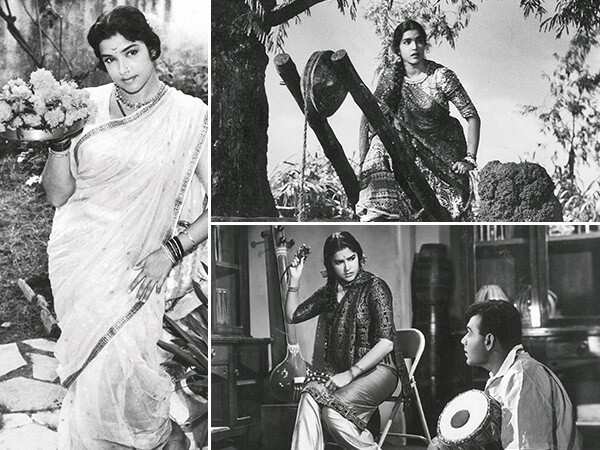
Touching 80, Shubha Khote credits her long innings to her happy-go-lucky personality. Farhana Farook reproduces the breezy conversation with the veteran She’s synonymous with smiles and laughter. But Shubha Khote, very early in her career, had Sahir Ludhianvi’s classic break-up ode – Tum mujhe bhool bhi jaao toh yeh
haq hai – filmed on her in Didi (1959). She played the dejected-in-love heroine to a handsome Sunil Dutt in the K. Narayan Kale film. But being the queen of tearjerkers was never her ambition.
The all-India cycling champ and the inter-collegiate swimming title holder, recognised as a tomboy amongst peers, was averse to the soppy perception of the heroine in Hindi cinema. She dared to take the path less-ventured and went on to win accolades for her ease with humour. Before we begin the interview, she ushers me in a special room that hosts her numerous trophies. She asks, “How can I choose my best film? Every film is special.” Then she points out to a picture of her favourite actor James Dean. “At the age 25, he played a 75-year-old man,” she remarks revealing why she revels in a sense of adventure. The almost 80 Shubha, in a 60-year-old career, has straddled films, television and theatre. She credits her untiring zest to ‘thinking positive and staying positive’
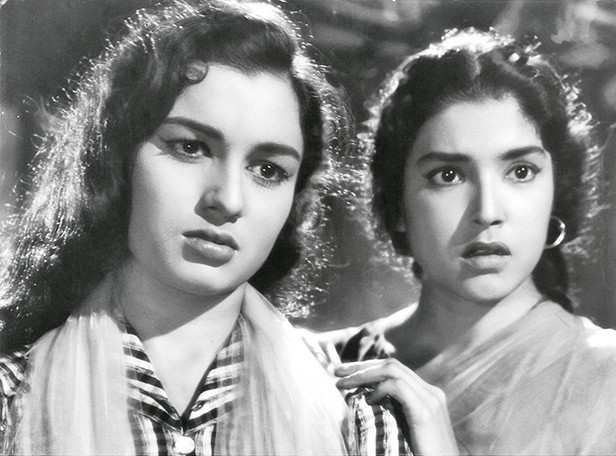
Game to play
The world of entertainment was not alien to the sporty Shubha Khote. Her father, Nandu Khote, was a stage actor, who had also acted in silent movies. Young Shubha made her stage debut at the age of four. But cycling and swimming remained her passions. “When I went for my first cycling race, my father declared, ‘If I have to take you back home on a stretcher, it’s okay. But you have to win the race’. And I won the inter-state race,” she beams. She had no ambition to become an actress back then in the early ’50s. “I did a Marathi film just for fun during the vacation, while still in college (St Wilson). A still from the film with me on a cycle was published in a newspaper,” she says. Seeing that noted filmmaker, Amiya Chakravarty, signed her for Seema (1955). Shubha played Putli, an orphan and a confidante to Nutan’s character, Seema. Towards the finale, the film had a bicycle chase, which required Shubha to display her talent. “I was supposed to chase a thief. There was rubble on the road and I fell and crashed my face. The left side of my face was ruined. I feared this was the end of my career,” she shares. In the next 11 months, she hurt her leg while shooting for a Marathi film and developed gangrene. “Thankfully, I overcame that too. I attended the jubilee function of Seema straight from the hospital. Luck has always been with me. I’ve faced seven major accidents during my career of six decades,” she reveals. After Seema, she received so much recognition that she was forced to buy a car and give up the cycle, even though she could hardly afford it. She went on to play a tragic role in Champa Kali (1957), the vamp in Paying Guest (1957) and a romantic heroine in Heera Moti (1959). But she was never interested in playing the leading lady.
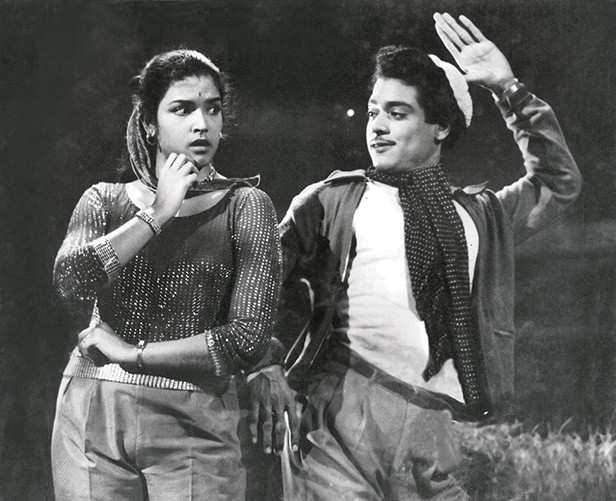
“I never gave importance to my looks. I never believed I was pretty. Meri shakal soorat was not that of a heroine,” she says with candour. She counts 1958 as her golden year, where she gave back to back hits including Anari, Gharana and Sasural. She even won the Filmfare nominations in the Best Supporting Actress category for her roles in the latter two. Her fan following increased manifold. Says she, “I’d answer the huge amount of fan letters myself,” she says. She also encountered the unpleasant kinds. “One of them threatened to throw acid on my face. The police had to be informed,” she recalls. It was L.V. Prasad’s Chhoti Bahen (1959) with Mehmood, which established her as a comedienne. “I enjoyed doing comedy. I’m a happy- go-lucky person. Amiyaji once told me, ‘You have a fantastic sense of timing. Stick to comedy’,” she says. She adds that she was inspired by actress Ramola Devi (Khazanchi, 1941), who had a lively screen presence.
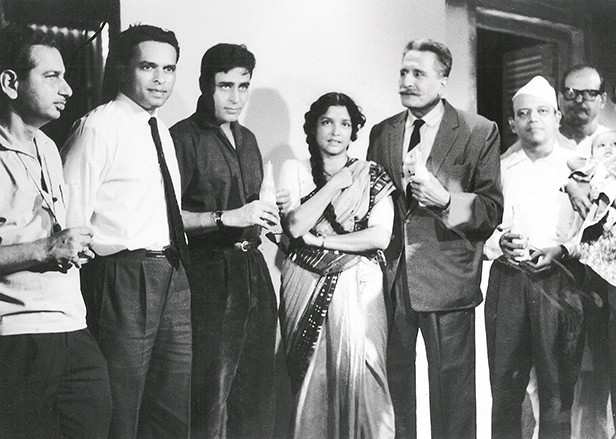
Mehmood and Me
For the next six years, films starring Shubha, Mehmood and Dhumal became huge grossers. These included Bharosa, Ziddi, Chhoti Behan, Sanjh Aur Savera, Love In Tokyo, Grahasthi, Humrahi and Beti Bete. “Mehmood, Dhumal and my track would be running parallel to that of the lead pair’s,” she smiles. “Mehmood was a jolly person. He’d always be cracking jokes. He was fond of perfumes and cars. We were so close, that I’d observe the Ramzan rozas with him, while he’d do the Shravan vrats with me. Sometimes, even Dhumal would join us,” she shares. To rumours linking her with Mehmood, she says, “I was never involved in affairs. Being a sportsperson, I was more of a tomboy. My co-stars regarded me as a tomboy. Mehmood and I called each other ‘Bhai’. We were buddies.” She adds, “You can’t stop people from talking. I took the rumours in my stride because you know what’s in your heart.” She concedes that heroines often felt unnerved by her presence. “Some heroines would insist on wearing the costumes reserved for me. As I’d been into sports, I had a good figure. So clothes would fit me well,” she says. My peers Shubha worked with Geeta Bali in Goyal Productions’ Nai Raahen (1959). “Geetaji was the only actress, who excelled in comedy,” she says adding, “In recent times, we had Sridevi. She was a quiet person but on camera she was magic. She made faces; she did all that her role required.” One actress she considers as her ‘dearest friend’ was the late Nutan. “We clicked from the word go in Seema. She remained my friend, philosopher and guide. She’d advise me on my clothes, my make-up,” she shares adding, “She was a natural beauty. She looked beautiful from any angle you shot her.” After Nutan’s marriage, Shubha says she stopped visiting her home. “Once I called her to wish her on her birthday. Her husband (the late Rajnish Bahl) picked up and said, ‘She’s sleeping. She has asked to be allowed to sleep at least on her birthday. Do you have a message?’ After that I stopped calling her. I didn’t want her to face any repercussions. I’d meet her on the sets,” says she. Nutan passed away in 1991 due to cancer. “During her last days, I’d talk to her on the phone. I don’t think she was particularly happy,” shares Shubha.
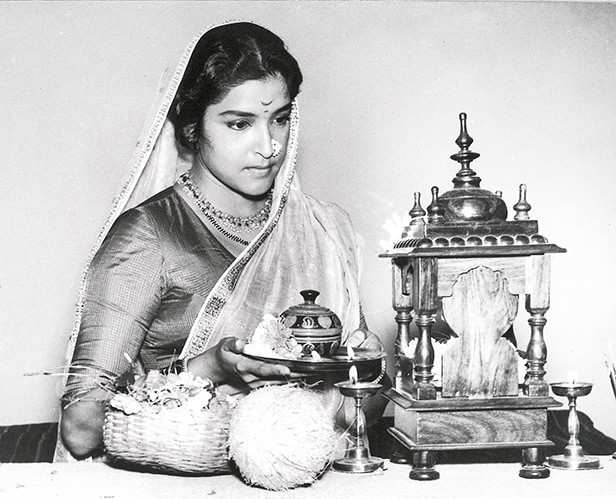
“Once I happened to meet her at Film City. She was waiting for her shot in the make-up room. I told her why don’t you complete your shot and go home. She said, ‘I’m more comfortable here than at home’.” Shubha regrets not having worked with Dilip Kumar. “But I wouldn’t have been able to act in front of him – so great he’s as an artiste. He’s Bhagwan to me. Even when his back is facing the camera, you can grasp his emotions,” she points out. She narrates an incident, “Once I met Dilip saab at Rajji’s (Kapoor) party. He addressed me as ‘pori’ (endearment for girl in Marathi) and placed his hand on my head. I didn’t wash my hair for days. My mother said, ‘Wash it or you’ll get lice!’” she laughs at the memory. “I worship him. He’s my Guru bhai. His first film Jwar Bhata was with Amiyaji. My first film, Seema, was with the same filmmaker.”
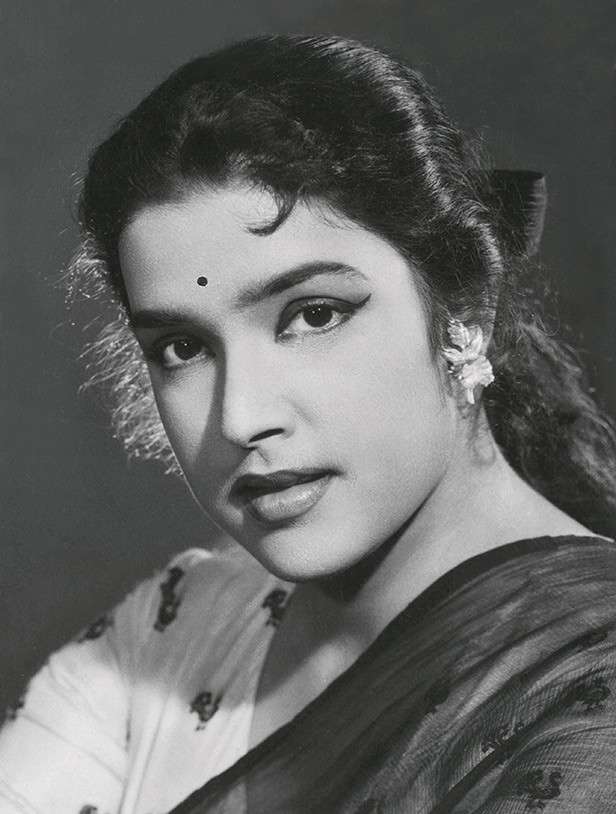
Marriage and me
Marriage was just as unplanned as her career. “Suddenly, you fall for someone. Yeh pyaar jo cheez hai… it can’t be controlled,” laughs Shubha, who married Dinesh. M. Balsaver, then an official with Burma-Shell. She chuckles as she narrates her ‘marriage drama’. “My mother (Leila Khote) was dead against it. I still can’t fanthom the reason. Perhaps, because he was a widower with two sons. Or because I was at the peak of my career. Or maybe, she wanted me to marry someone else,” she says. “She locked me up in a room. I then took sleep- inducing pills. My dadi (grandmother), who was like a rock, supported me. So did my brother (actor Viju Khote), my father and the rest of the family.” Anyway, her father and brother whisked her away to their old home in Chowpatty from her bungalow in Santa Cruz. “The pheras were fixed for January 24. But my mother got a wind of it. So, we got married on January 21 instead,” laughs the actor who just celebrated her 55th anniversary. “Thankfully, after my daughter Bhavna (Balsaver, actor) was born, my mother cooled down,” she informs.
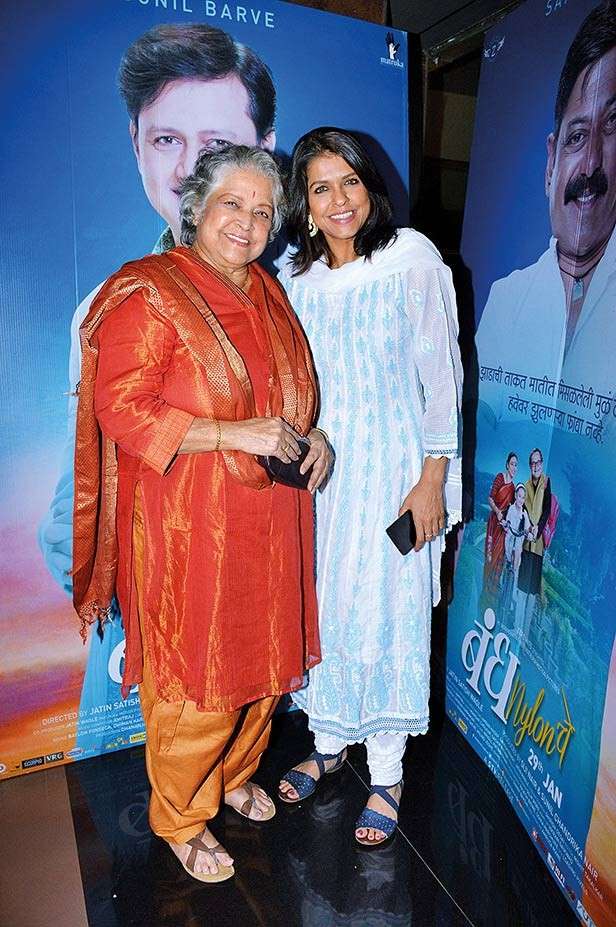
“Years later, I played my mother in Ek Duuje Ke Liye,” she says of her iconic character of a villain with comic shades in the film. Shubha is close to her two stepsons – Parmanand and Ashwin. “Until the younger was seven, I didn’t have my own. Bhavna was born later,” she says. She was a hands-on mother. “I never had an ayah for my children. Parmanand later studied at Scindia School in Gwalior. Ashwin, who’s a bit emotional, couldn’t adjust being away from home. He came back,” she says. Today, Ashwin is a sound-recordist, who’s worked for shows like Kaun Banega Croprepati and Dus Ka Dum, while Parmanand is in the US. Shubha’s all praise for her husband, who encouraged her to work. After marriage, she produced and directed the Marathi film Chimukla Pahuna (1968), in which her husband appeared in a cameo. “I told him chalo kar lo,” she reminisces. Her husband has a farm in Kamshet. “We get vegetables and fruits from there. He visits us every fortnight.”
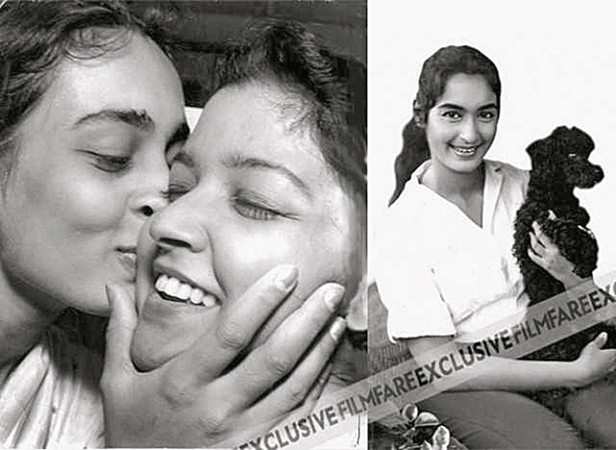
Break and beyond
Between 1966-1975, Shubha continued to be seen in films like Love in Tokyo, Tumse Achha Kaun Hai, Mili and Badlatey Rishtey. There was a lull in her career when she accompanied her husband to London, given his posting there. She regards Ek Duuje Ke Liye as her comeback film. “Though my role was negative, it was funny,” she smiles. Between the ’80s- ’90s, she was seen in films like Coolie, Sagar and Dil Hai Ke Manta Nahin. Recently, she featured in Toilet Ek Prem Katha and the Madhuri Dixit starrer Bucket List. She has also directed comedy plays like Hera Pheri, Hum Dono and Let’s Do It. Her home production, Bachelor’s Wives, had more than 40 shows in Mumbai. She also did the Hindi adaptation of the play No Sex Please, titled Hangama Ho Gaya. “Theatre keeps me focussed,” she says. Her hit TV shows include Zabaan Sambhalke, Baa Bahoo Aur Baby and Mangalam Dangalam, which is currently on air. Through the six decades she stuck to her dictum. “I never asked for work and I stayed away from negativity. I don’t like playing negative roles either.
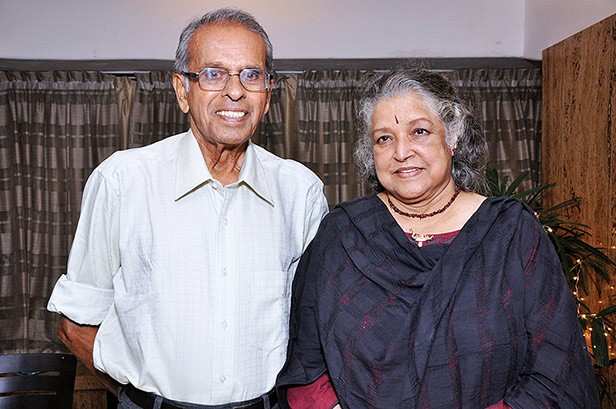
I didn’t watch Paying Guest because of that. Years later, my children forced me to watch it,” she says of the Subodh Mukherjee film. What brings her joy are the simple things. “I enjoy seeing birds on trees. I love observing the peculiar, the unusual about life,” she says adding, “Bhavna and I try to catch the first day first show of a film. She comes all the way from Chowpatty for this. It’s fun.”
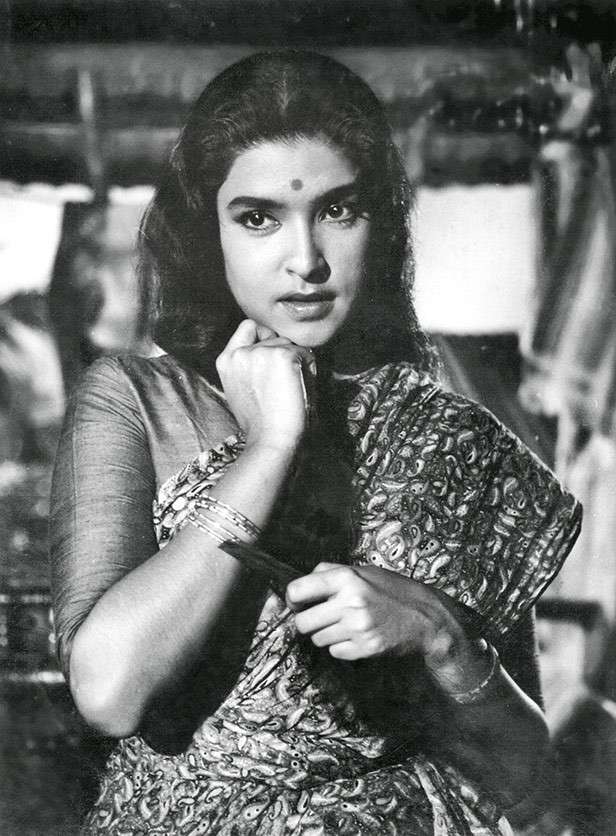

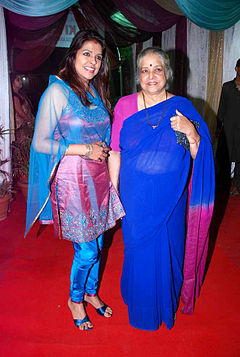

No comments:
Post a Comment